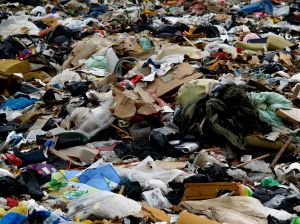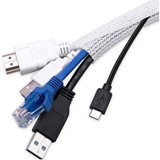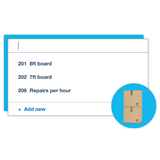Typically people take this electronic waste, or e-waste, to the tip. But the waste can be toxic - containing mercury, lead, arsenic, brominated flame retardants, beryllium and cadmium - and even if handed over to an official council recycling centre can still end up in landfill sites.
Printer inks and toners often contain toxic materials such as carbon black and cadmium. When disposed of improperly, the toxins can escape from the landfill, seep into groundwater, contaminate the soil and enter the food chain.
In 2008, the latest figures available, 31.7 million new televisions, computers and computer products were sold in Australia. Another 16.8 million units reached the end of their life that year. Of these, 88 per cent ended up in landfill, according to the Australian Bureau of Statistics.
For this reason the Australian government decided late last year to introduce an e-waste recycling scheme to tackle the mounting problem and ensure the waste is disposed of in a more environmentally friendly way.
The scheme will require importers or manufacturers to join a producer responsibility organisation (PRO) to organise the collection and recycling of televisions and computers from consumers by 2011.
"We will use the coming months to identify how product stewardship schemes might work in practice and address barriers or implementation challenges," Peter Garrett, Minister for Environment Protection, Heritage and the Arts said recently, in an official update on the scheme.
The PRO will charge members the cost of collection and recycling. A manufacturer or importer can choose not to join a PRO but must make sure they have their own equivalent arrangements in place, though the government does not expect many suppliers to take this route.
The scheme will be policed by comparing import data to the PRO's membership lists, and then checking that those who fall through the net are complying correctly.
The cost of the scheme will fall on producers and importers of e-waste, though studies of a similar scheme in Europe have shown they are likely to past the cost on to consumers by hiking prices slightly.
Consumers of televisions and computers will be responsible for ensuring that their end of life televisions and computers are taken to one of a number of designated collection points to be recycled, and will not be charged to do so directly.
What happens to the e-waste then is still unclear. Analysis of similar schemes in the US and Europe have found that 50 to 80 per cent of e-waste collected for recycling is exported to developing nations and is often not recycled properly, damaging local ecosystems.
An international law known as the Basel Convention was designed to stop this trade but it is impossible to police and the firm 1800Ewaste estimates that $20m worth of equipment is still exported to the third world to be recycled every year.
"We recycle everything we collect in Australia," said Katie Shale, a spokesperson for 1800 ewaste. "But we have to refuse offers from overseas companies who want to buy the waste and there is definitely still a market there."
Australia has been criticised by the Basel Action Network in the past for not complying with the law and campaigners are hoping the government will ensure as much e-waste as possible collected under the new scheme is recycled on Australian soil.












